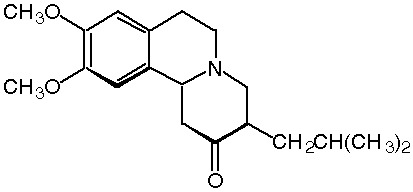WASHINGTON -- Phase III clinical data presented yesterday during the satellite symposia held in conjunction with the American Neurological Association 129th annual meeting in Toronto, Ontario, demonstrated that the investigational therapy tetrabenazine is an effective treatment for chorea associated with Huntington's Disease (HD). HD is a debilitating CNS disorder marked by incessant involuntary movements for which there is no approved therapy in the United States. Tetrabenazine is a novel dopamine depletor currently on the market in parts of Europe, Australia and Canada for a variety of hyperkinetic movement disorders.
"We are very encouraged by these study results. Tetrabenazine demonstrated a significant effect in study patients without causing some of the side effects often experienced with other treatments," said Frederick J. Marshall, MD, lead investigator, Huntington Study Group, University of Rochester, New York. "Patients suffering from Huntington's Disease are in need of effective, tolerable therapies for treating their chorea."
Study Results
A randomized, double-blind, placebo-controlled study involving 84 patients with HD examined the efficacy of tetrabenazine versus placebo in treating chorea associated with HD. Patients were randomized to receive tetrabenazine (n=54) or placebo (n=30) for 12 weeks. The primary outcome was the change from baseline in chorea score as measured by the Unified Huntington's Disease Rating Scale (UHDRS), a research tool that provides an assessment of clinical features. Secondary outcomes included the Clinical Global Impression (CGI) score, a clinician-rated scale used to assess the severity of illness and change in clinical condition over time.
After 12 weeks, the adjusted mean tetrabenazine chorea score declined by 5.0 points, while scores for the placebo group declined by 1.5 points (p(less than)0.0001). Tetrabenazine was superior to placebo as assessed by the CGI scale (p=0.007). Forty-eight patients (89%) in the tetrabenazine group had at least one adverse effect, compared with 21 subjects (70%) in the placebo group (p=0.03).
"The involuntary, abnormal movements associated with Huntington's Disease can have a devastating impact on patients, and on their ability to perform many activities of daily living," said Kathleen Clarence-Smith, MD, Ph.D., Acting Chief Executive Officer, Prestwick Pharmaceuticals. "The positive study results presented today further validate the treatment success we are seeing in other parts of the world. We are focused on providing patients with the first approved therapy for chorea associated with HD in the United States."
Prestwick anticipates filing a New Drug Application (NDA) for tetrabenazine with the U.S. Food and Drug Administration (FDA) in the near future for the treatment of chorea associated with HD. The company was granted fast track and orphan drug status by the FDA.
Huntington's Disease
Chorea can be a debilitating feature of a number of neurological diseases, most notably HD. The condition is characterized by excessive, involuntary and repetitive movements, which may involve the face, limbs or the entire body.
Tetrabenazine
Tetrabenazine is available in some European markets and Australia as XENAZINE(TM) and in Canada as NITOMAN(R) for the treatment of hyperkinetic movement disorders. Although currently an investigational drug in the U.S., tetrabenazine can have a profound effect on chorea, with many patients demonstrating marked to good improvement. Side effects can include drowsiness, insomnia, akathisia and depression.
About the Huntington Study Group
This study of tetrabenazine, called "TETRA-HD," was organized and conducted by the Huntington Study Group (HSG), a non-profit, cooperative group of Huntington's Disease experts from medical centers in North America, Europe and Australia who are dedicated to improving treatment for persons affected by Huntington's Disease. For more information, call the HSG at 800-487-7671, or visit their web sites at www.Huntington-Study-Group.org and www.HuntingtonProject.org.
About the Symposia
Conducted in association with the ANA, the 18th Annual Symposia on Etiology, Pathogenesis, and Treatment of Parkinson's Disease and Other Movement Disorders is organized by the Parkinson Study Group, Huntington Study Group, Dystonia Study Group, Myoclonus Study Group, Tourette Syndrome Study Group, Cooperative Ataxia Group and the Movement Disorder Society.
Prestwick Pharmaceuticals
Prestwick Pharmaceuticals, Inc. is an emerging specialty pharmaceutical company that focuses on treatments for CNS disorders. The company has multiple product candidates in clinical development for Huntington's Disease, Parkinson's Disease, and schizophrenia.
COPYRIGHT 2004 Business Wire
COPYRIGHT 2004 Gale Group



